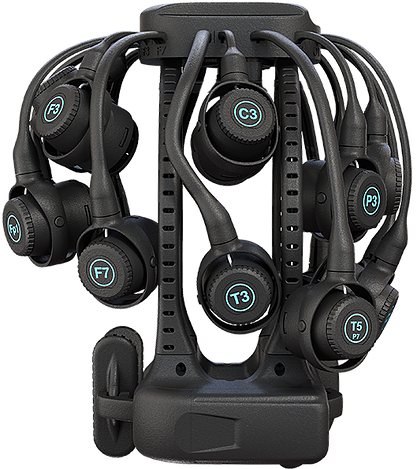Role: Researcher
Forensic Brainwave Analysis currently has three areas: Brain Fingerprinting (BFP), Complex Trial Protocol and Brain Electrical Oscillation Signature Profiling.
BFP is an ERP*-based knowledge detection technology aiming to detect concealed knowledge pertaining to an incident (criminal or otherwise) in a person’s brain. BFP can also detect if a certain person has knowledge specific to a specific group or organisation (e.g., FBI).
BFP was invented in the early 1990s by Dr Lawrence (Larry) Farwell - currently the Chief Science Officer of the Brain Fingerprinting Technologies.
During my PhD at University of Canterbury, I worked with academics from psychology and law in a New Zealand Law Foundation project to replicate the accuracy and reliability of the BFP technology with general population and with parolees.
An EEG headset (see the figure) and a computer software are used in this technology.

Can we beat Brain Fingerprinting?
I have also investigated a cognitive psychology technique known as Think/No-Think in collaboration with the University of Cambridge, UK read further. Think/No-Think might be used as a countermeasure against BFP. There is a potential for prospective Honours, Master’s and PhD students to work with us on BFP and Think/No-Think at the University of Canterbury. This will tell us what type of people could employ Think/No-Think, and potentially beat BFP.
ERP = Event-related potential
Achievement
- I was awarded a PhD scholarship to conduct this research.
Publications
- Afzali et al. (2023). Detection of concealed knowledge via the ERP-based technique Brain Fingerprinting: Real-life and real-crime incidents.
- Afzali et al. (2022).. Classification accuracy of the event-related potentials-based Brain Fingerprinting and its robustness to direct-suppression and thought-substitution countermeasures.
In preparation
- Afzali et al. Brain Fingerprinting: How to do better and why?
- Palmer et al. Brain Fingerprinting: Science, Law, and Society.
- Funicelli et al. The Complex Trial Protocol and P300-MERMER: A critical analysis of two memory detection methods.